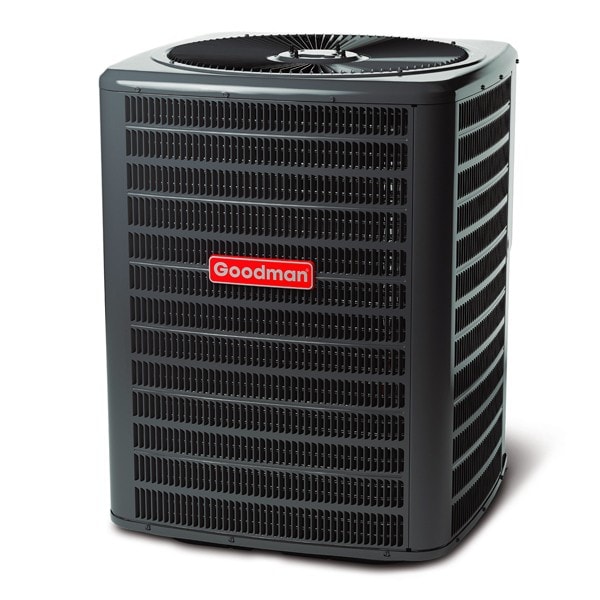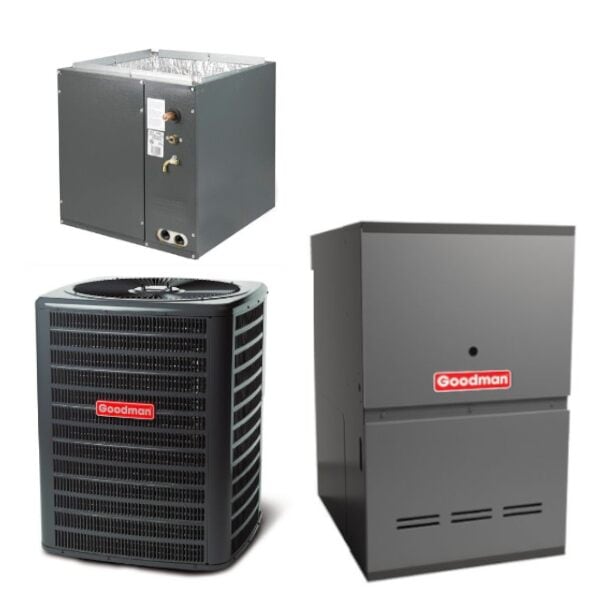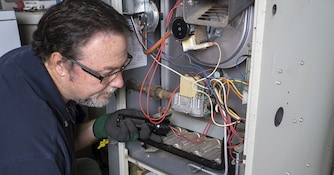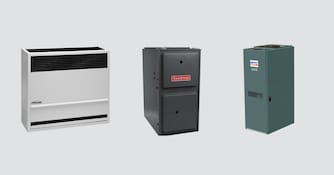
Heat Wars: Heat Pump vs Furnace
 The battle between furnaces and heat pumps is hot right now. Although most Americans use natural gas furnaces for heating, the electric heat pump is beginning to catch on, especially in milder climates, due to its higher energy efficiency.
The battle between furnaces and heat pumps is hot right now. Although most Americans use natural gas furnaces for heating, the electric heat pump is beginning to catch on, especially in milder climates, due to its higher energy efficiency.
In this guide, we’ll overview the difference between a heat pump and a forced air furnace system and discuss what’s best for you.
Heat Pump vs Furnace
Heat pumps and furnaces are very different, so make sure you know what you are buying.
| Central Furnace | Central Heat Pump |
|---|---|
 |  |
| Heats Only | Heats and Cools |
| Uses Natural Gas, Oil, Propane, or Electricity | Uses Electricity |
| Less Efficient (80%-97%) | More Efficient (100%) |
| Works in All Climates | Works in Warmer Climates |
| Produces Emissions | No Emissions |
| Longer Lifespan/Less Maintenance | Shorter Lifespan/More Maintenance |
Furnaces
A traditional furnace burns fossil fuels to heat up a heat exchanger. Then, a blower draws indoor air into the furnace, where it passes over the heat exchanger, heats up, and is distributed around the home via ductwork.
Make sure you read our furnace buyer’s guide for more detailed information on all aspects of a furnace system.
Heat Pumps
A heat pump works the opposite of an air conditioner. In fact, it can be used as an air conditioner during the summer by simply reversing a valve.
Cold liquid refrigerant absorbs outdoor heat and becomes a vapor as it passes through a coil. An electric compressor then compresses the vapor, which increases the temperature. The vapor flows into the indoor air handler where it condenses back into liquid and releases heat into the home. The cold liquid flows back outside for another cycle.
Read our guide on how heat pumps work to learn more.
Cost to Run Heat Pump vs Gas Furnace
 The value of a heat pump or furnace depends mainly on where you live and your local fuel costs.
The value of a heat pump or furnace depends mainly on where you live and your local fuel costs.
Since a furnace creates its own heat, it can handle the coldest temperatures, making it perfect, and in some cases the only option, for frigid northern climates.
A heat pump transfers outdoor heat inside. As such, it is reliant on there being some warmth in the outdoor air, making it best for areas where the average wintertime temperature is above 40 degrees Fahrenheit, such as the southeast.
Heat pumps are far more efficient than furnaces because they need to use significantly less energy to transfer heat than a furnace does to create heat. So, if you already live in a warm climate, why spend money on a furnace that creates more heat than you need?
The exception, of course, is if electricity costs more than gas in your area. In that case, it may be more expensive to run that heat pump compressor than a gas or propane burner. Check with your local utilities on the cost of energy before buying any long-term equipment.
When it comes to maintenance costs and lifespan, a furnace wins out because it's only used for a few months of the year. Since a heat pump can be used year-round for heating and cooling, it suffers more wear and tear.
At What Temperature is a Heat Pump Not Effective?
Central-forced air heat pumps start losing effectiveness at around 40 degrees Fahrenheit, which is the major downside.
That doesn’t mean that everyone living above the Mason-Dixon line is out of luck when it comes to enjoying the energy efficiency of heat pumps. Suppose you live in Minnesota. You can supplement the heat pump with a space heater, but that will cancel out the energy savings.
Heat Pump Furnace Combo
 A better option for northerners is a heat pump furnace kit, also known as a dual-fuel system, because you get the best of both worlds. The furnace will provide satisfying heat on the coldest days, while the heat pump can be used during the Fall and Spring when it’s warmer. A thermostat monitors the outdoor temperature and decides when to use the heat pump vs. the furnace.
A better option for northerners is a heat pump furnace kit, also known as a dual-fuel system, because you get the best of both worlds. The furnace will provide satisfying heat on the coldest days, while the heat pump can be used during the Fall and Spring when it’s warmer. A thermostat monitors the outdoor temperature and decides when to use the heat pump vs. the furnace.
Since a heat pump can be used as an air conditioner during the summer, an added benefit is you don’t need a separate AC unit. That makes the heat pump furnace combo perfect for all four seasons.
We’re focusing on central forced air heating in this guide, but ductless mini splits can also act as heat pumps and have a lower temperature threshold. Learn more in our heat pump vs cooling-only mini splits guide.
The Bottom Line
Everyone can benefit from a heat pump as long as the costs of electricity in their area are lower than the cost of natural gas or propane. For those in cold climates, you will still need a furnace in addition to a heat pump for those subfreezing days.
If you have questions about choosing a furnace or heat pump, please contact us, and our experts will help you find the perfect solution.





